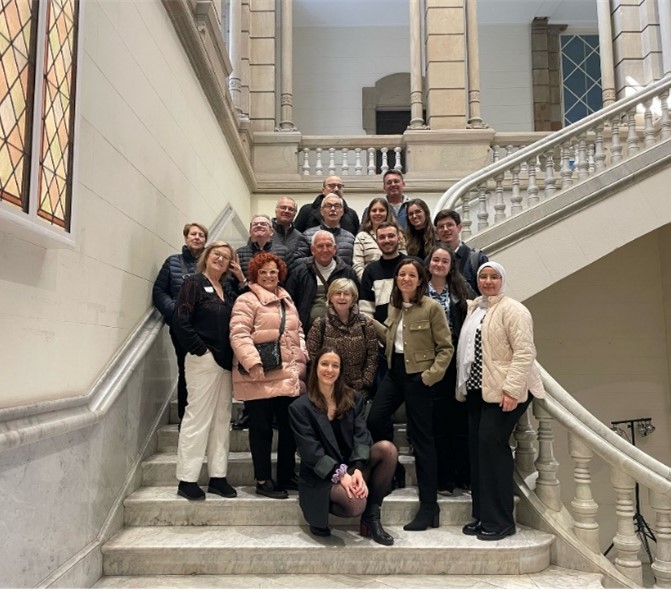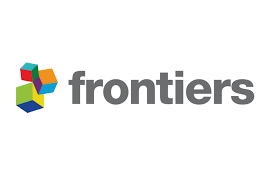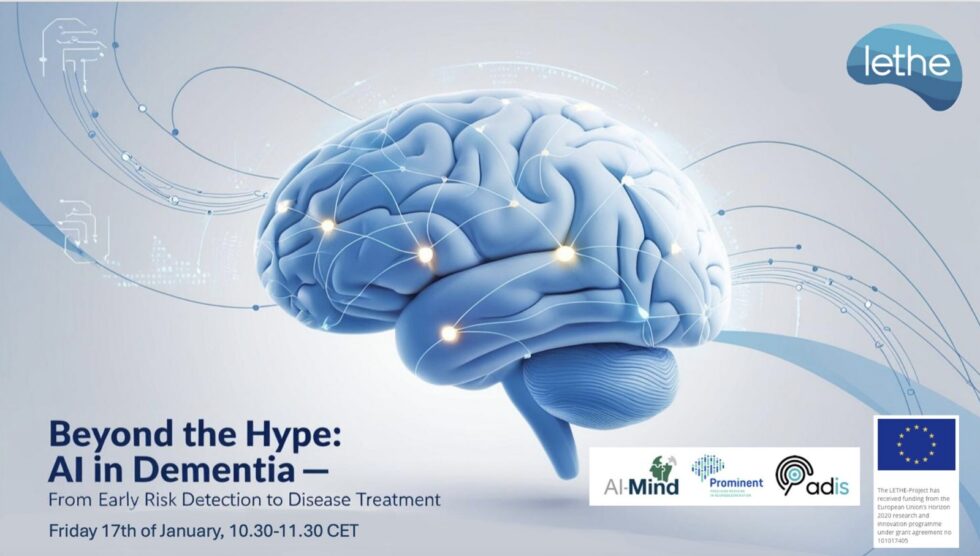On 4 to 5 June, ADIS project partners met in Regensburg (Germany) and online for their biannual General Assembly, hosted by the Fraunhofer Institute for Toxicology and Experimental Medicine (ITEM-R).
The meeting began with opening remarks by the project coordinator Holger Fröhlich Fraunhofer Institute for Algorithms and Scientific Computing (SCAI). Next, Vanessa Lage-Rupprecht (SCAI) reported on project progress, highlighting the successful study participant recruitment, the ongoing cell sequencing, and underlined a dissemination milestone that was achieved with the publication of the first project paper, accessible here.
Christophe Bintener (Alzheimer Europe) then gave a short update on the communication activities, including updates of the project website and an upcoming video interview that will be conducted at ITEM-R. The following presentation was given by Neus Falgàs from Fundació Clínic per a la Recerca Biomèdica (FCRB). She provided an overview of the clinical data and biosample acquisition process, which has been finalised. The samples are now with ITEM-R for single-cell sequencing. The libraries of the immune profiling are about to be sent to SEQOMICS.
After a lunch break, Holger Fröhlich gave an overview of the recently launched Innovative Health Initiative funded “PREDICTOM” project, which aims to develop a screening platform capable of identifying people at risk of dementia before the first symptoms appear.
The afternoon focused on agent-based modelling with a presentation by Uri Nevo (Tel Aviv University), where he showcased some preliminary analyses. The next presenter was Sophia Krix (SCAI) explaining the different possibilities to analyse the data generated at FCRB using Artificial Intelligence and statistical modelling. While giving her presentation she also suggested some research papers that could be generated from the work in collaboration with partners.
Last but not least, Soraya Moradi-Bachiller (Alzheimer Europe) spoke about the consultations with the young ADIS Advisory Board. Recent consultations focused on a brain health campaign that was extensively discussed with the project partners.
The second day started with a guest speech by Rainer Spang, who gave an overview of research on single-cell data and modelling progressive diseases. The consortium partners then had a lively discussion on the brain health campaign and how it could be organised. They also discussed the format and timing of a public event.
After that, Holger Fröhlich closed the meeting, thanking all attendees for the constructive exchanges and contributions.





